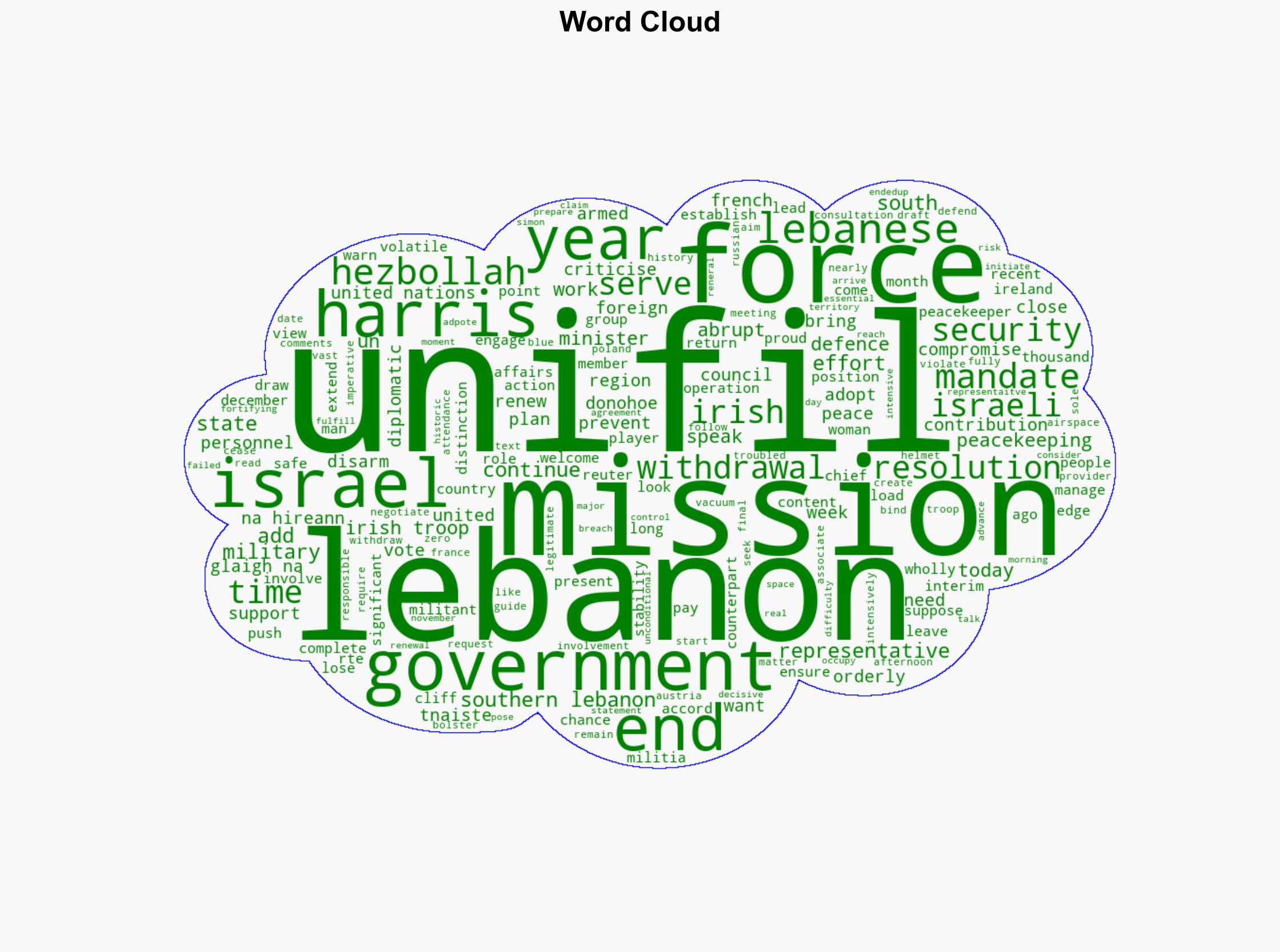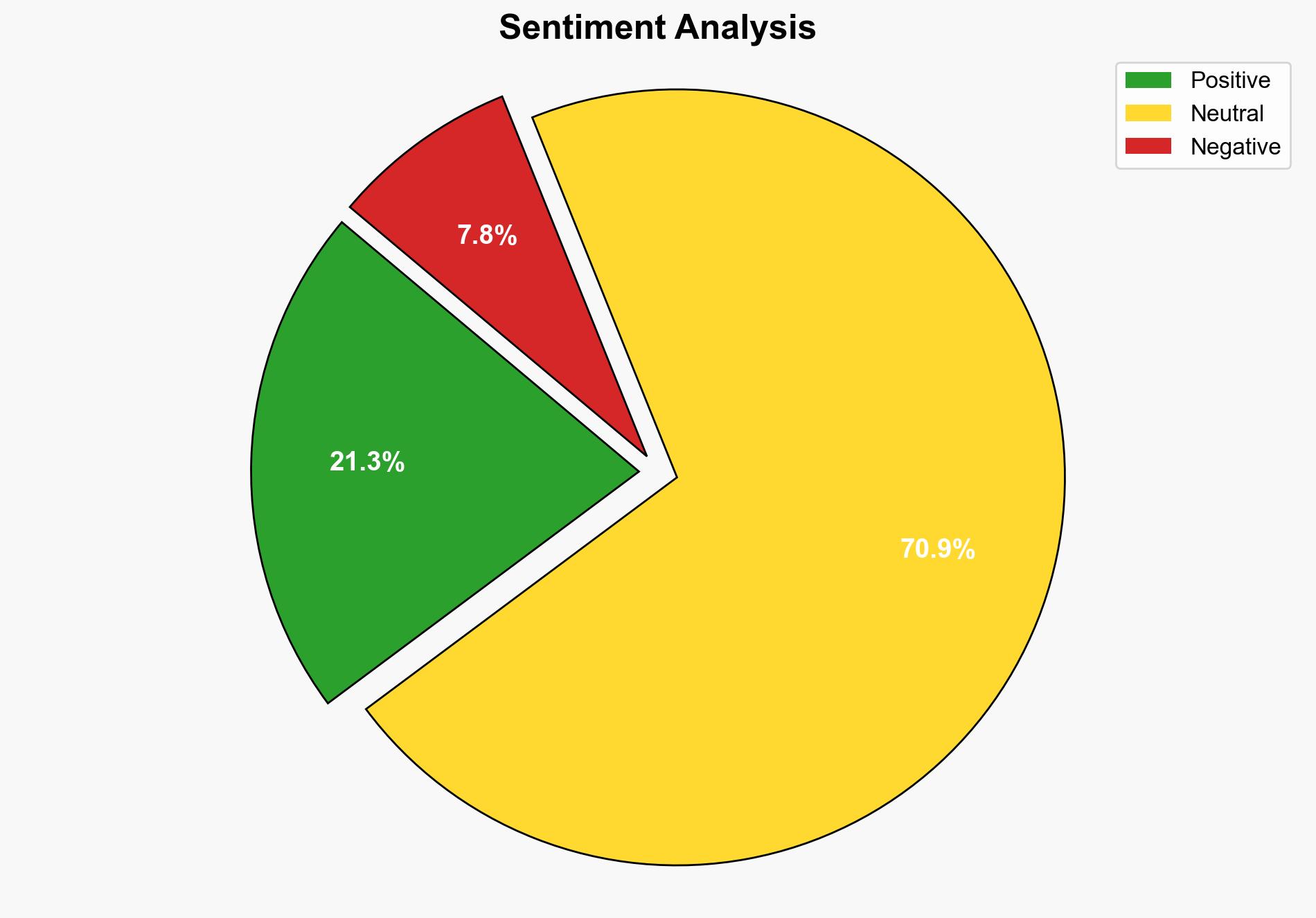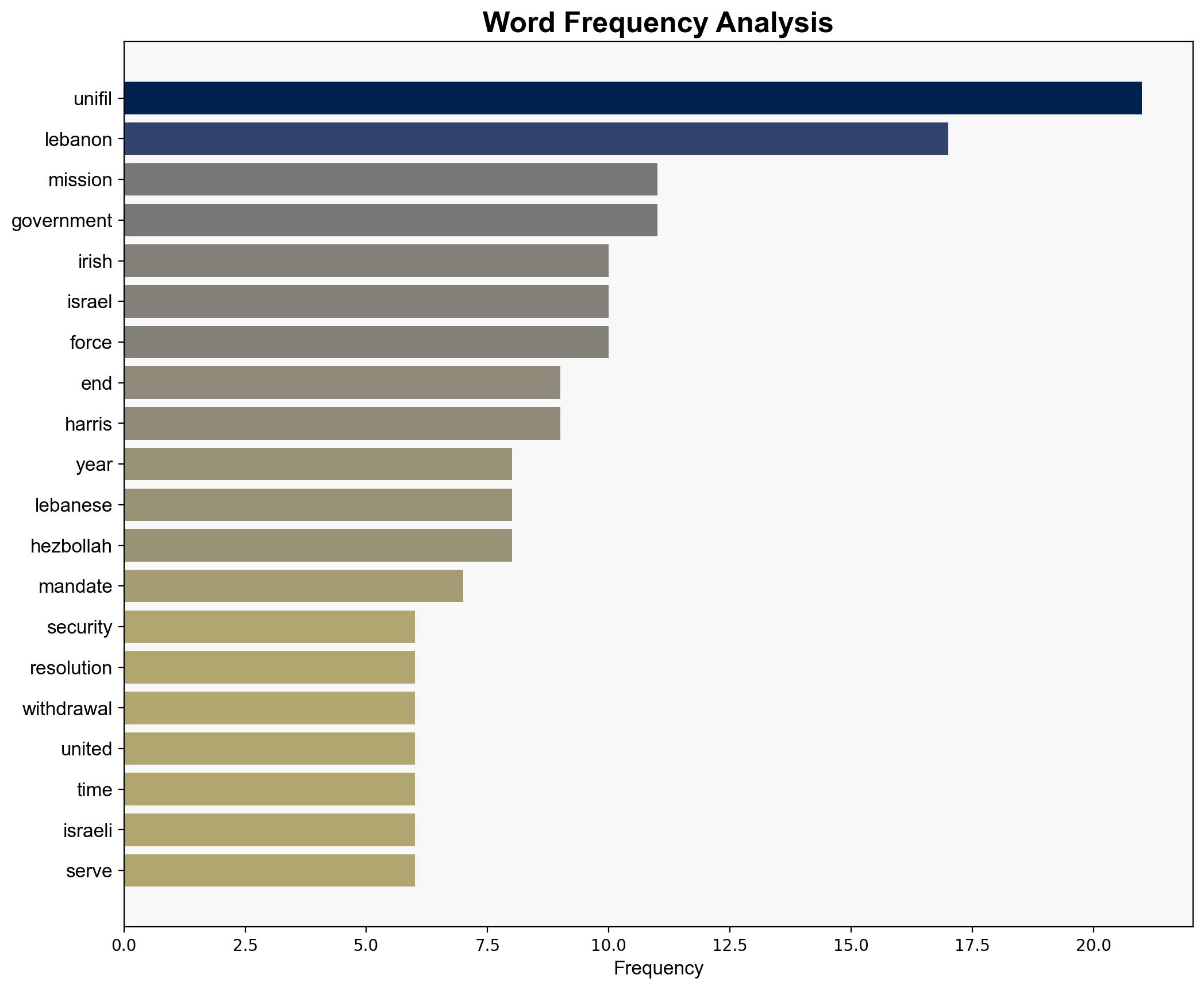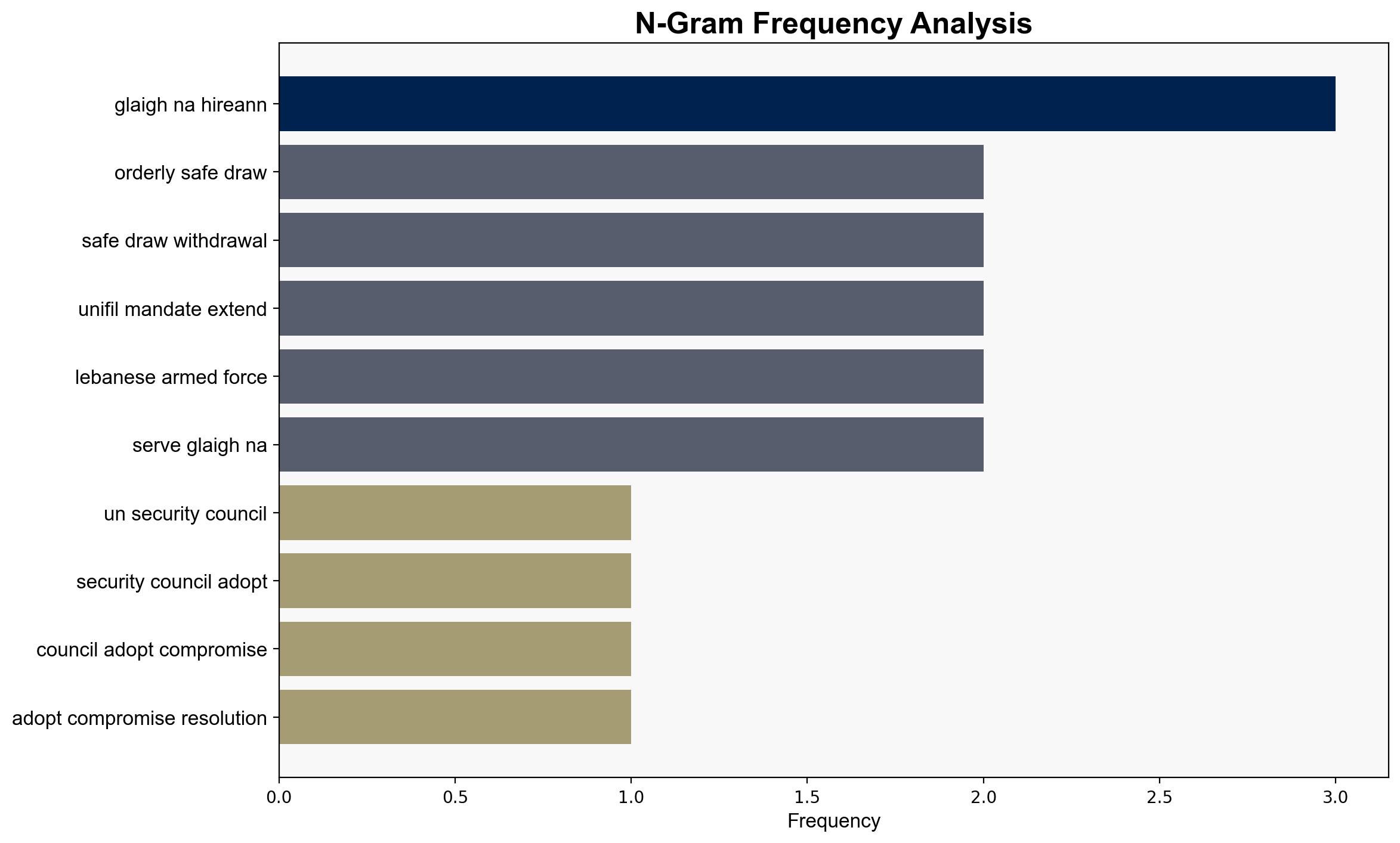UN mission in Lebanon to be wound down by 2027 – RTE
Published on: 2025-08-27
Intelligence Report: UN mission in Lebanon to be wound down by 2027 – RTE
1. BLUF (Bottom Line Up Front)
The UN mission in Lebanon, UNIFIL, is set to be wound down by 2027, following a compromise resolution by the UN Security Council. The most supported hypothesis is that this decision is primarily driven by geopolitical pressures and a strategic shift towards empowering the Lebanese government to manage its own security. Confidence in this hypothesis is moderate due to existing regional tensions and the complex interplay of international interests. Recommended action includes diplomatic engagement with key stakeholders to ensure a stable transition and prevent a security vacuum.
2. Competing Hypotheses
1. **Hypothesis A**: The decision to wind down UNIFIL is primarily influenced by geopolitical pressures, particularly from the United States and Israel, aiming to reduce international military presence and push Lebanon towards self-reliance in security matters.
2. **Hypothesis B**: The decision is a result of operational inefficiencies and perceived failures of UNIFIL to prevent Hezbollah’s fortification in southern Lebanon, prompting a reevaluation of its effectiveness and necessity.
Using ACH 2.0, Hypothesis A is better supported due to the alignment of international diplomatic efforts and the strategic interests of key players like the United States and Israel, who have been vocal about the need for Lebanese self-sufficiency and the reduction of foreign military presence.
3. Key Assumptions and Red Flags
– **Assumptions**:
– The Lebanese government is capable of assuming full security responsibilities by 2027.
– Regional actors will adhere to diplomatic agreements and not exploit the transition period.
– **Red Flags**:
– Potential for Hezbollah to increase influence in the absence of UNIFIL.
– Inconsistent statements from Israeli and Lebanese representatives regarding security breaches and military actions.
4. Implications and Strategic Risks
The withdrawal of UNIFIL could lead to a power vacuum in southern Lebanon, potentially escalating tensions between Israel and Hezbollah. This scenario could destabilize the region, affecting economic and geopolitical stability. The risk of increased militant activity and cross-border conflicts remains high, necessitating close monitoring and contingency planning.
5. Recommendations and Outlook
- Engage in proactive diplomacy with Lebanon, Israel, and other regional stakeholders to facilitate a smooth transition and prevent security vacuums.
- Enhance support for the Lebanese Armed Forces to build capacity and ensure effective control over southern Lebanon.
- Scenario-based projections:
- **Best Case**: Successful transition with strengthened Lebanese security forces and reduced regional tensions.
- **Worst Case**: Security vacuum leads to increased Hezbollah activity and regional conflict.
- **Most Likely**: Gradual transition with intermittent security challenges requiring international mediation.
6. Key Individuals and Entities
– Simon Harris
– Representatives from the United States, Israel, France, Ireland, Austria, Poland, and Russia
– Hezbollah
7. Thematic Tags
national security threats, regional stability, geopolitical strategy, peacekeeping operations




